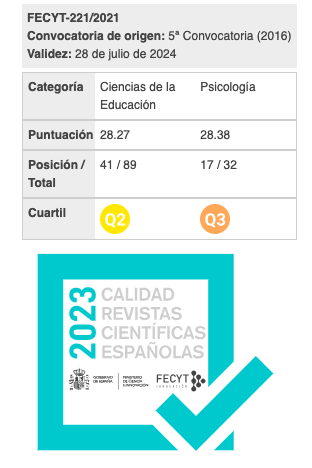Revisiting the Antecedents of Social Entrepreneurial Intentions in Hong Kong
Keywords:
Downloads
Abstract
This study examined how empathy, moral obligation, social entrepreneurial self-efficacy, perceived social support, and prior experience with social problems are associated with social entrepreneurial intentions. Through a survey, a sample of 252 Hong Kong students was used for analyses. Factor analyses supported that the antecedents of social entrepreneurial intentions could be divided into dimensions of empathy, moral obligation, social entrepreneurial self-efficacy, perceived social support, and prior experience with social problems. Multiple regression analysis results indicated that perceived social support was the most prominent antecedent of social entrepreneurial intentions, followed by moral obligation, empathy, and prior experience with social problems. Notably, moral obligation was revealed to be negatively associated with social entrepreneurial intentions.
Downloads
References
Ajzen, I. (1991). The theory of planned behavior. Organizational Behavior and Human Decision Processes, 50(6), 179-211.
Google Scholar CrossrefAustin, J., Stevenson, H., & Wei‐Skillern, J. (2006). Social and commercial entrepreneurship: Same, different, or both? Entrepreneurship Theory and Practice, 30(1), 1-22.
Google Scholar CrossrefBacq, S., Hartog, C., & Hoogendoorn, B. (2016). Beyond the moral portrayal of social entrepreneurs: An empirical approach to who they are and what drives them. Journal of Business Ethics, 133(4), 703-718.
Google Scholar CrossrefBaron, R. A., & Markman, G. D. (2000). Beyond social capital: How social skills can enhance entrepreneurs' success. The Academy of Management Executive, 14(1), 106-116.
Google Scholar CrossrefBatjargal, B., Hitt, M. A., Tsui, A. S., Arregle, J. L., Webb, J. W., & Miller, T. L. (2013). Institutional polycentrism, entrepreneurs' social networks, and new venture growth. Academy of Management Journal, 56(4), 1024-1049.
Google Scholar CrossrefCalic, G., & Mosakowski, E. (2016). Kicking off social entrepreneurship: How a sustainability orientation influences crowdfunding success. Journal of Management Studies, 53(5), 738-767.
Google Scholar CrossrefChan, K. T., Kuan, Y. Y., & Wang, S. T. (2011). Similarities and divergences: Comparison of social enterprises in Hong Kong and Taiwan. Social Enterprise Journal, 7(1), 33-49.
Google Scholar CrossrefChell, E., Spence, L. J., Perrini, F., & Harris, J. D. (2016). Social entrepreneurship and business ethics: Does social equal ethical? Journal of Business Ethics, 133(4), 619-625.
Google Scholar CrossrefCorner, P. D., & Ho, M. (2010). How opportunities develop in social entrepreneurship. Entrepreneurship Theory and Practice, 34(4), 635-659.
Google Scholar CrossrefDacin, M. T., Dacin, P. A., & Tracey, P. (2011). Social entrepreneurship: A critique and future directions. Organization Science, 22(5), 1203-1213.
Google Scholar CrossrefDe Groot, J. I., & Steg, L. (2009). Morality and prosocial behavior: The role of awareness, responsibility, and norms in the norm activation model. The Journal of Social Psychology, 149(4), 425-449.
Google Scholar CrossrefDecety, J., & Jackson, P. L. (2004). The functional architecture of human empathy. Behavioral and Cognitive Neuroscience Reviews, 3(2), 71-100.
Google Scholar CrossrefDees, J. G. (1998). The meaning of “social entrepreneurship”. Stanford University: Draft Report for the Kauffman Center for Entrepreneurial Leadership.
Google Scholar CrossrefDefourny, J., & Kim, S. Y. (2011). Emerging models of social enterprise in Eastern Asia: A cross-country analysis. Social Enterprise Journal, 7(1), 86-111.
Google Scholar CrossrefEngle, R. L., Dimitriadi, N., Gavidia, J. V., Schlaegel, C., Delanoe, S., Alvarado, I., ... Wolff, B. (2010). Entrepreneurial intent: A twelve-country evaluation of Ajzen's model of planned behavior. International Journal of Entrepreneurial Behavior & Research, 16(1), 35-57.
Google Scholar CrossrefGano-Overway, L. A. (2014). The caring climate: How sport environments can develop empathy in young people. In K. Pavlovich & K. Krahnke (Eds.), Organizing through empathy (pp. 166-183). New York, NY: Routledge.
Google Scholar CrossrefHaines, R., Street, M. D., & Haines, D. (2008). The influence of perceived importance of an ethical issue on moral judgment, moral obligation, and moral intent. Journal of Business Ethics, 81(2), 387-399.
Google Scholar CrossrefHmieleski, K. M., & Baron, R. A. (2008). When does entrepreneurial self‐efficacy enhance versus reduce firm performance? Strategic Entrepreneurship Journal, 2(1), 57-72.
Google Scholar CrossrefHo, A. P. Y., & Chan, K. T. (2010). The social impact of work-integration social enterprise in Hong Kong. International Social Work, 53(1), 33-45.
Google Scholar CrossrefHockerts, K. (2015). Antecedents of social entrepreneurial intentions: A validation study. Social Enterprise Journal, 11(3), 260-280.
Google Scholar CrossrefHockerts, K. (2017). Determinants of social entrepreneurial intentions. Entrepreneurship Theory and Practice, 41(1), 105-130.
Google Scholar CrossrefHumphrey, R. H. (2013). The benefits of emotional intelligence and empathy to entrepreneurship. Entrepreneurship Research Journal, 3(3), 287-294.
Google Scholar CrossrefKeat, O. Y., Selvarajah, C., & Meyer, D. (2011). Inclination towards entrepreneurship among university students: An empirical study of Malaysian university students. International Journal of Business and Social Science, 2(4), 206-220.
Google Scholar CrossrefKennedy, P. (2002). Learning cultures and learning styles: Myth-understandings about adult (Hong Kong) Chinese learners. International Journal of Lifelong Education, 21(5), 430-445.
Google Scholar CrossrefKhuong, M. N., & An, N. H. (2016). The factors affecting entrepreneurial intention of the students of Vietnam National University: A mediation analysis of perception toward entrepreneurship. Journal of Economics, Business and Management, 4(2), 104-111.
Google Scholar CrossrefKibler, E., & Kautonen, T. (2016). The moral legitimacy of entrepreneurs: An analysis of early-stage entrepreneurship across 26 countries. International Small Business Journal, 34(1), 34-50.
Google Scholar CrossrefKraus, S., Filser, M., O’Dwyer, M., & Shaw, E. (2014). Social entrepreneurship: An exploratory citation analysis. Review of Managerial Science, 8(2), 275-292.
Google Scholar CrossrefKrueger, N. F., Reilly, M. D., & Carsrud, A. L. (2000). Competing models of entrepreneurial intentions. Journal of Business Venturing, 15(5), 411-432.
Google Scholar CrossrefLuo, M., & Chui, E. W. T. (2016). An alternative discourse of productive aging: A self-restrained approach in older Chinese people in Hong Kong. Journal of Aging Studies, 38, 27-36.
Google Scholar CrossrefMair, J., & Marti, I. (2006). Social entrepreneurship research: A source of explanation, prediction, and delight. Journal of World Business, 41(1), 36-44.
Google Scholar CrossrefMair, J., & Noboa, E. (2006). Social entrepreneurship: How intentions to create a social venture are formed. In J. Mair, J. Robinson & K. N. Hockerts (Eds.), Social entrepreneurship (pp. 121-135). Basingstoke, U.K.: Palgrave MacMillan.
Google Scholar CrossrefMiller, T. L., Grimes, M. G., McMullen, J. S., & Vogus, T. J. (2012). Venturing for others with heart and head: How compassion encourages social entrepreneurship. Academy of Management Review, 37(4), 616-640.
Google Scholar CrossrefMort, G., Weerawardena, J., & Carnegie, K. (2003). Social entrepreneurship: Towards conceptualisation. International Journal of Nonprofit and Voluntary Sector Marketing, 8(1), 76-88.
Google Scholar CrossrefNgai, S. S. Y. (2006). Service-learning, personal development, and social commitment: A case study of university students in Hong Kong. Adolescence, 41(161), 165-176.
Google Scholar CrossrefNickols, S. Y., & Nielsen, R. B. (2011). So many people are struggling: Developing social empathy through a poverty simulation. Journal of Poverty, 15(1), 22-42.
Google Scholar CrossrefOyserman, D., Coon, H. M., & Kemmelmeier, M. (2002). Rethinking individualism and collectivism: Evaluation of theoretical assumptions and meta-analyses. Psychological Bulletin, 128(1), 3-72.
Google Scholar CrossrefSequeira, J., Mueller, S. L., & McGee, J. E. (2007). The influence of social ties and self-efficacy in forming entrepreneurial intentions and motivating nascent behavior. Journal of Developmental Entrepreneurship, 12(3), 275-293.
Google Scholar CrossrefShumate, M., Atouba, Y., Cooper, K. R., & Pilny, A. (2014). Two paths diverged: Examining the antecedents to social entrepreneurship. Management Communication Quarterly, 28(3), 404-421.
Google Scholar CrossrefSiu, W. S., & Lo, E. S. C. (2013). Cultural contingency in the cognitive model of entrepreneurial intention. Entrepreneurship Theory and Practice, 37(2), 147-173.
Google Scholar CrossrefStam, W., Arzlanian, S., & Elfring, T. (2014). Social capital of entrepreneurs and small firm performance: A meta-analysis of contextual and methodological moderators. Journal of Business Venturing, 29(1), 152-173.
Google Scholar CrossrefStephan, U., Uhlaner, L. M., & Stride, C. (2015). Institutions and social entrepreneurship: The role of institutional voids, institutional support, and institutional configurations. Journal of International Business Studies, 46(3), 308-331.
Google Scholar CrossrefThompson, E. R. (2009). Individual entrepreneurial intent: Construct clarification and development of an internationally reliable metric. Entrepreneurship Theory and Practice, 33(3), 669-694.
Google Scholar CrossrefUrban, B. (2015). Evaluation of social enterprise outcomes and self-efficacy. International Journal of Social Economics, 42(2), 163-178.
Google Scholar CrossrefWang, J.-H., Peng, L.-P., & Liang, C. (2014). Developing and testing the psychological variable, rural practice, and entrepreneurial intentions scales. Review of Agricultural Extension Science, 31, 72-95.
Google Scholar CrossrefWissink, B., Koh, S. Y., & Forrest, R. (2017). Tycoon city: Political economy, real estate and the super-rich in Hong Kong. In R. Forrest, S. Y. Koh & B. Wissink (Eds.), Cities and the super-rich: Real estate, elite practices and urban political economies (pp. 229-252). New York, NY: Palgrave Macmillan.
Google Scholar CrossrefWood, S. (2012). Prone to progress: Using personality to identify supporters of innovative social entrepreneurship. Journal of Public Policy & Marketing, 31(1), 129-141.
Google Scholar CrossrefYli‐Renko, H., Autio, E., & Sapienza, H. J. (2001). Social capital, knowledge acquisition, and knowledge exploitation in young technology‐based firms. Strategic Management Journal, 22(6‐7), 587-613.
Google Scholar CrossrefZheng, H., Li, D., Wu, J., & Xu, Y. (2014). The role of multidimensional social capital in crowdfunding: A comparative study in China and US. Information & Management, 51(4), 488-496.
Google Scholar CrossrefDownloads
Published
Almetric
Dimensions
How to Cite
Issue
Section
License
All articles are published under Creative Commons copyright (CC BY). Authors hold the copyright and retain publishing rights without restrictions, but authors allow anyone to download, reuse, reprint, modify, distribute, and/or copy articles as the original source is cited.
















